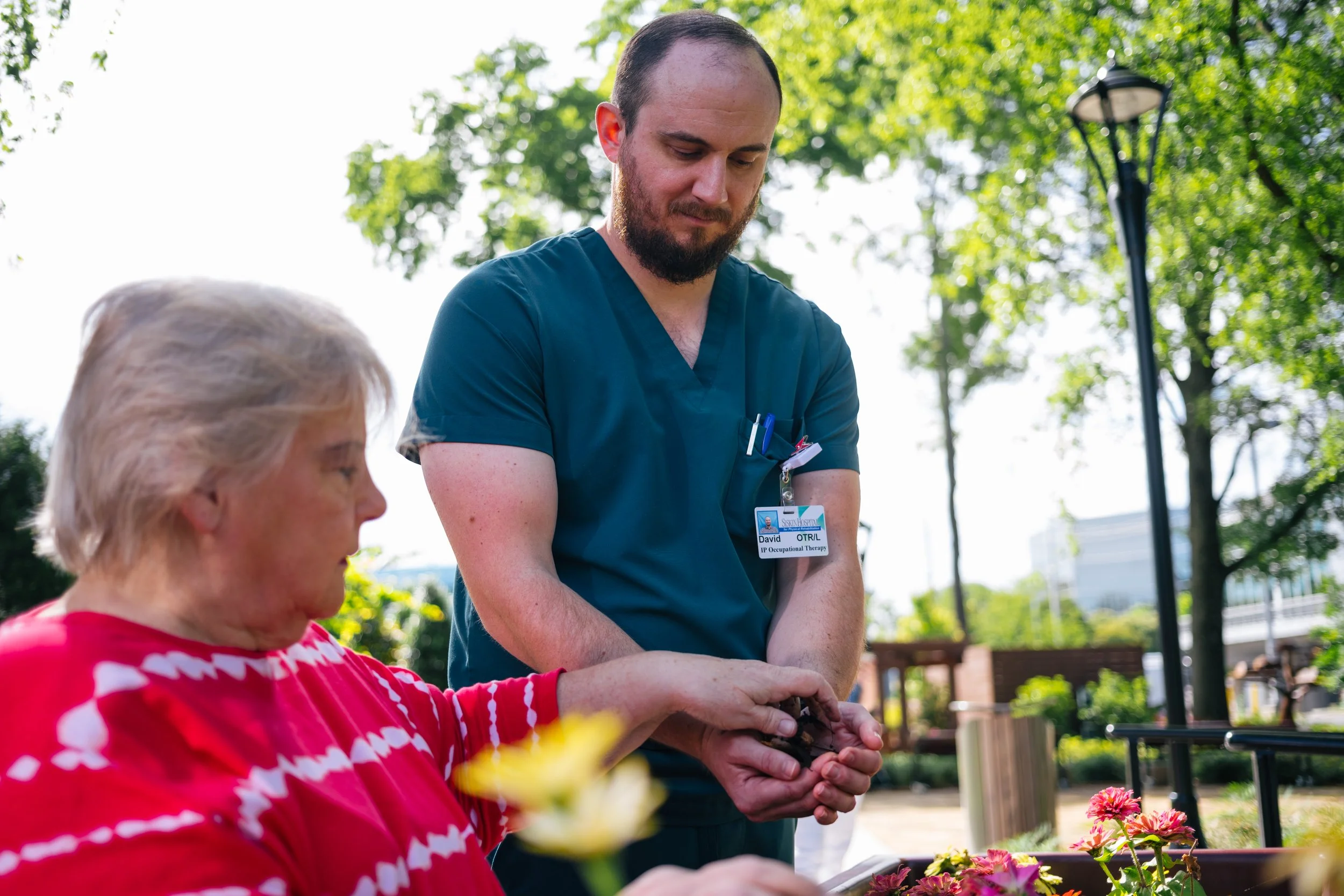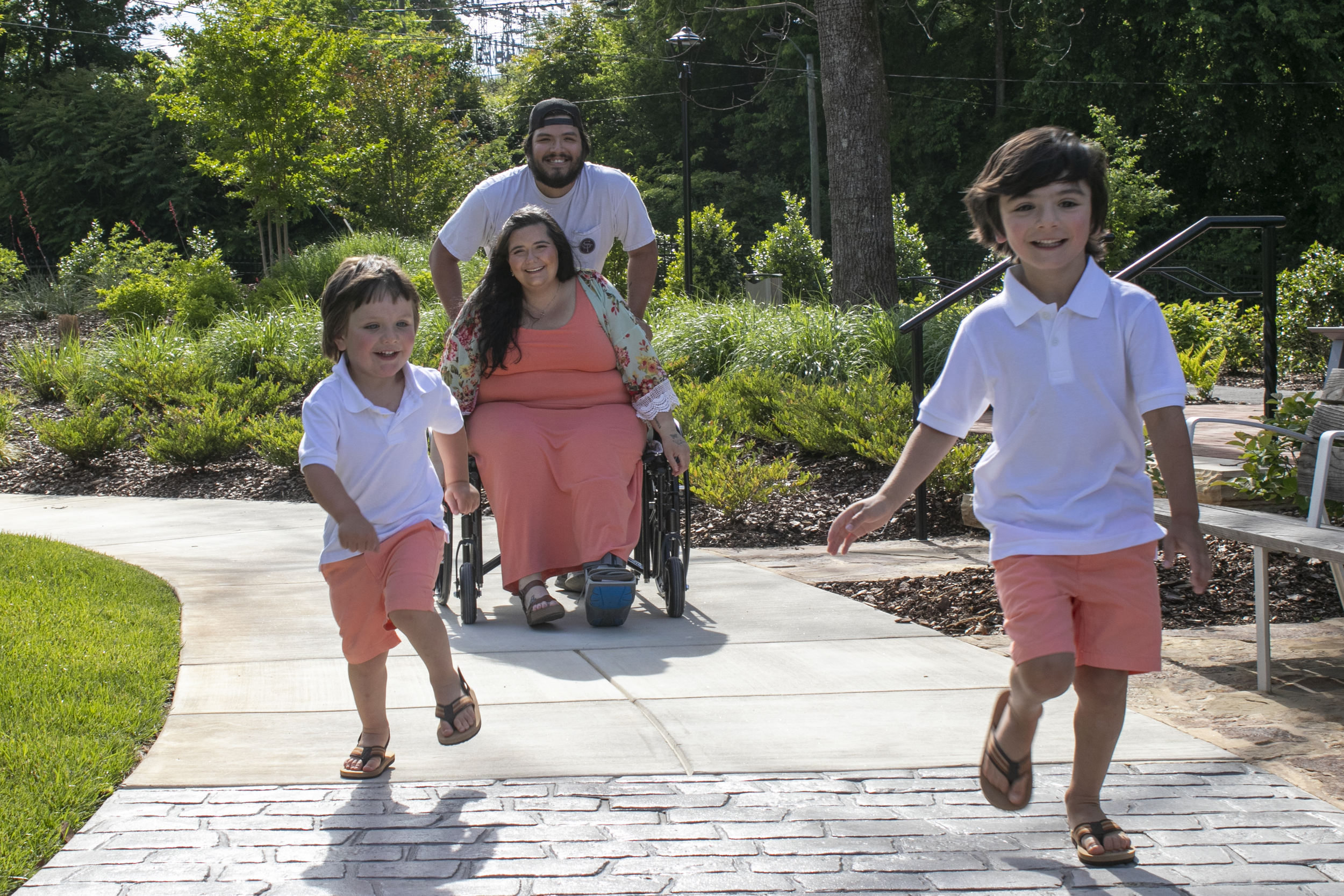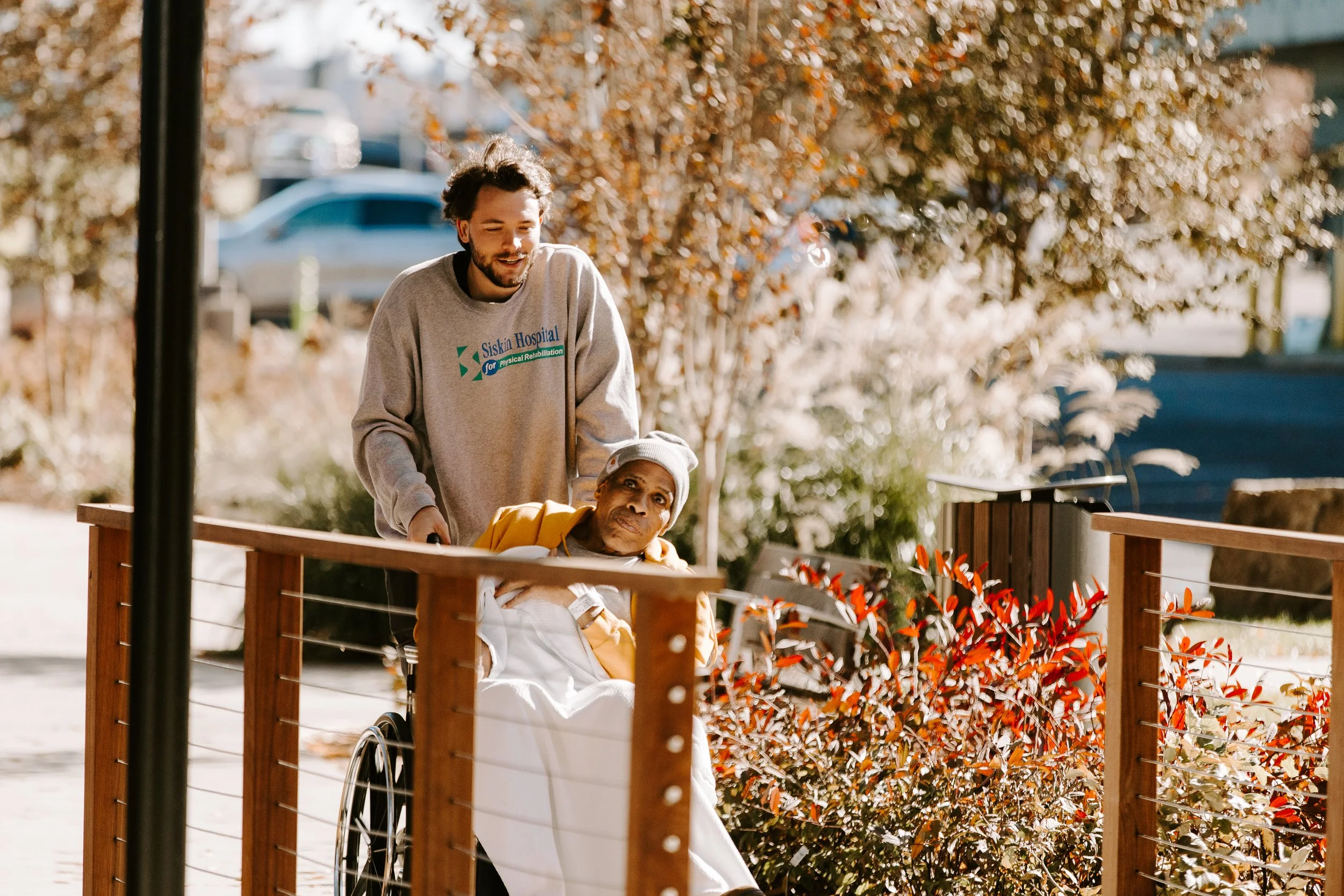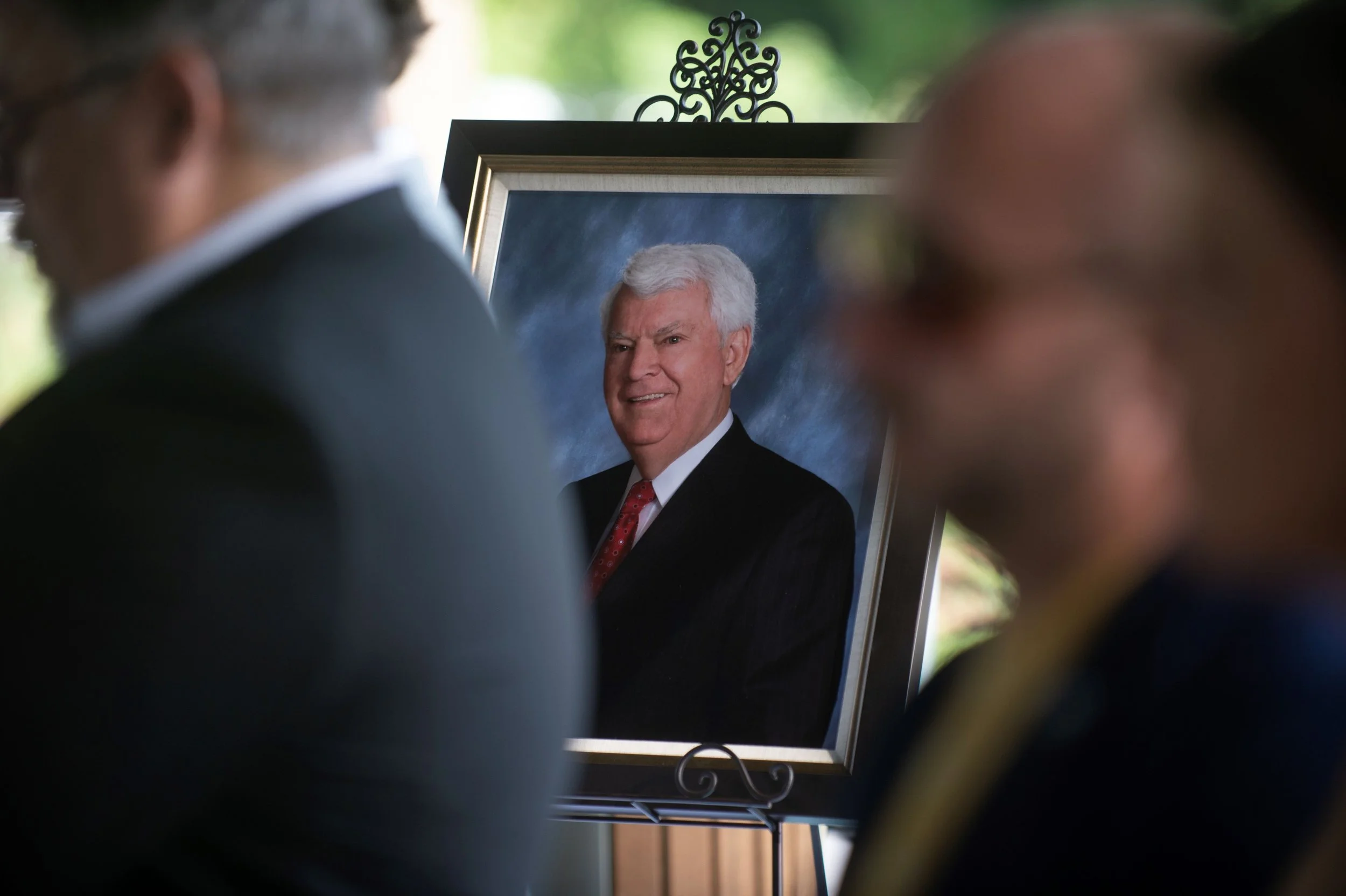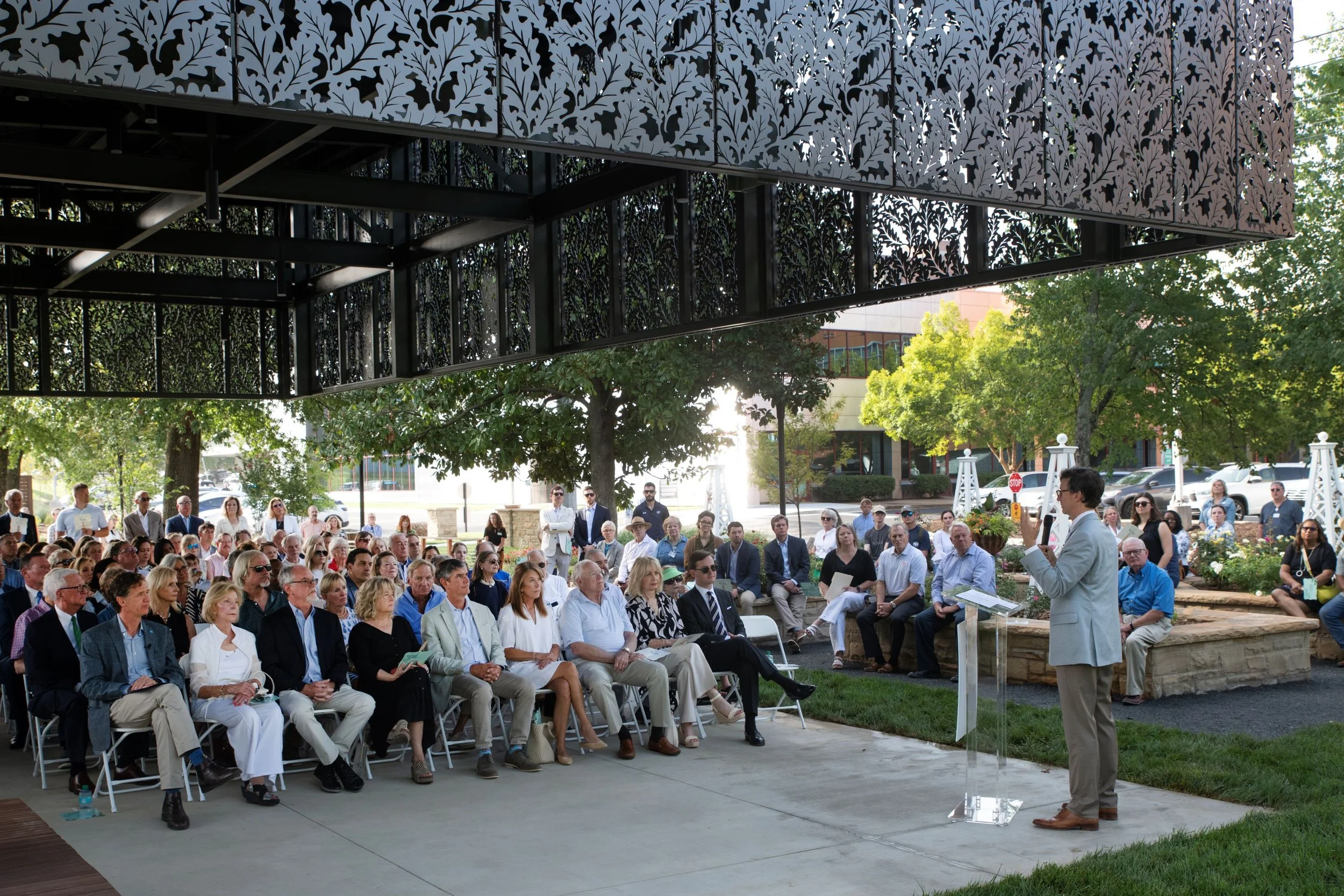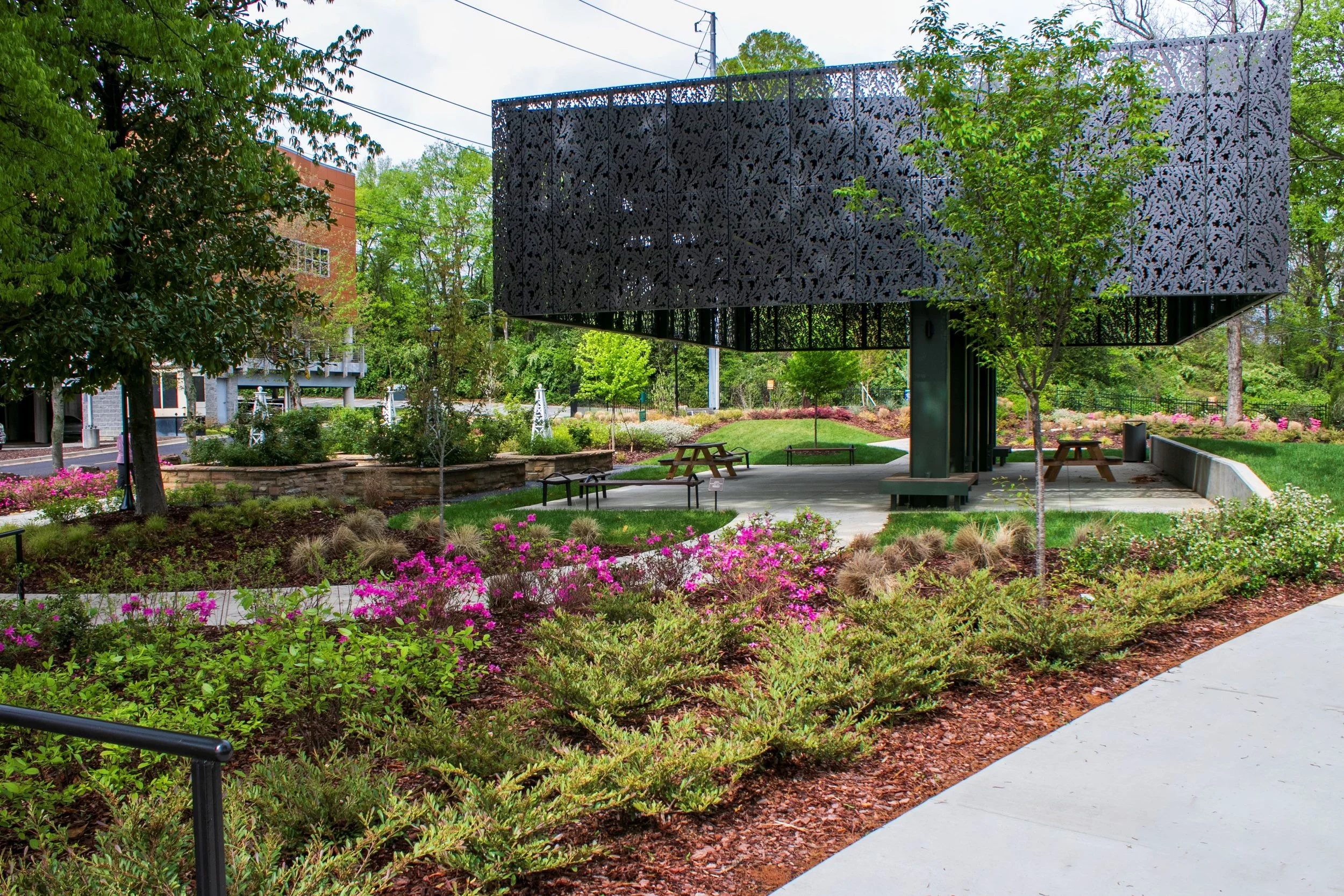
The Healing Gardens at Siskin Hospital
Hope is the vine that runs through everything we do at Siskin Hospital. Because we have witnessed how transformative and healing hope can be, we are always looking for innovative ways to inspire it in our patients and their families.
We are excited to provide hope in an entirely new way through the Healing Gardens at Siskin Hospital. These five beautiful outdoor spaces will offer a place for patients to reflect and relax, and engage in specialized, targeted therapies.
Patient receiving occupational therapy in Grady’s Garden through raised planters
Patient and her family enjoying time together outside in the Healing Garden
Nurse taking a patient out to enjoy the sunshine
Our first and largest garden is now open for our patients, visitors and associates to enjoy! Thanks to our exclusive WiFi partner EPB, our guests can communicate and be entertained online while being immersed in nature.
We will also have gardens in the lower courtyard, 2nd level terrace, health and fitness center terraces, and a newly created therapy park and along the American Tennessee Water property.
You can still be a part of our mission!
We are still raising funds for the other planned healing gardens across our hospital’s campus. Through supporting the Healing Gardens at Siskin Hospital, you are allowing our patients, visitors, and associates to nurture not only their physical health, but also their mental and emotional well-being.
-
Research shows a clear link between nature and healing including relief from symptoms and improvement in an overall sense of well-being and hopefulness.
Close access to a garden has been proven to significantly mitigate the stress experienced by ICU family visitors, which has been compared to post-traumatic stress disorder. (Ulrich, 2019)
Plants, according to a study conducted at the University of Technology in Sydney, reduce anxiety by 37%, hostility by 44%, and depression by 58%. Plants, on the other hand, reduced fatigue by 38%. Employees who work in plant-friendly environments have higher self-esteem and are more creative, according to a study. Many doctors are starting to recommend walking through the woods as a medicine supplement for people with a lower risk of chronic illnesses.
Horticulture has been used to calm the senses as far back in 2000BC in Mesopotamia (“History of Horticulture”).
Preliminary studies have reported the benefits of horticultural therapy and garden settings in reduction of pain, improvement in attention, lessening of stress, modulation of agitation, lowering of as needed medications, antipsychotics and reduction of falls. (Detweiler, 2012)
In the USA, the therapeutic benefits of peaceful garden environments have been understood since at least the 19th century. Dr. Benjamin Rush, considered to be the "Father of American Psychiatry" in the United States, reported that garden settings held curative benefits for people with mental illness.
Use of an outdoor garden has been proven to decrease falls in patients. 28 residents experienced about a 30% decrease for both the raw number of falls and fall severity scores after the garden opened. The raw number of falls decreased 38.7% for the high garden users compared to 7.9% for the infrequent garden users. (Detweiler, 2009)
The Joint Commission for Accreditation of Hospitals even recommends that “patients and visitors should have opportunities to connect with nature through outside spaces, plants, indoor atriums and views from windows.”
-
Garden users will include patients, visitors, and associates. Positive outcomes, including stress reduction and lower blood pressure, are derived from both passive and active nature connection.
A study published in the Journal of Science in 1984 by environmental psychologist Roger Ulrich reported that patients with bedside windows looking out on leafy trees healed, on average a day faster, needed significantly less pain medication, and had fewer post-surgical complications than patients who instead saw only a brick wall.
-
Special design considerations, including those that appeal to various senses, will be implemented including:
Seating with arm rests and adequate spacing for wheelchairs
Raised garden beds and hanging baskets for easier reach.
Walkways that encourage the visitor to slow down and look around
Plants with different textures
Sunny and shady areas
Fresh herbs and flowering plants to appeal to the senses
Artwork, such as sculptures, to promote visual stimulation
-
1) Increased positive patient outcomes related to reduced stress plus additional physical and occupational therapy opportunities.
2) A place for respite and well-being for families visiting Siskin Hospital.
3) Siskin Hospital can effectively contribute to the revitalization of Chattanooga’s “Wellness and Innovation” district along Third Street currently underway.
-
Mike & Mitsy Costello (Co-chairs)
Bruce Komiske (Advisory chair)
Matthew A. Gibson, Ph.D., FACHE, President and CEO, Siskin Hospital
Charlie Arant
Carrie Chambers
Peter Charman
Jay Dale
Fred Decosimo
Nick Decosimo
Rose Decosimo
Greg Eaves
Trudy Harper
Mike Haskew
Jones Krogh
Jeff Messinger
Roger Smith
Mike St. Charles
Edie Sutter
Jim Vaughn
Bill Wilder
-
Grady’s Garden Grand Opening & Ribbon Cutting
On August 2, 2024, we were proud to open our first and largest therapeutic garden, dedicated in memory of Grady Paschal Williams, a civic leader and businessman who spearheaded fundraising campaigns for many local philanthropic organizations prior to his passing in March 2022. “Grady’s Garden at Siskin Hospital” features unique landscaping designs and an iconic pavilion where patients, visitors, and hospital associates can gather for special events, or enjoy quiet moments of rest.
“Siskin Hospital is delighted to honor our friend Grady Williams’ memory with the establishment of Grady’s Garden. Through his civic involvement and business relationships, Grady left an indelible mark on Chattanooga and beyond. He was instrumental in the planning process and beginning stages of fundraising for the Healing Gardens campaign, so we felt it fitting to honor his legacy in this way,” said Mike Costello, campaign co-chair.
If you knew Grady Williams, this is the opportune time to give in his honor on Giving Tuesday. Please designate your gift for "Grady's Garden."

